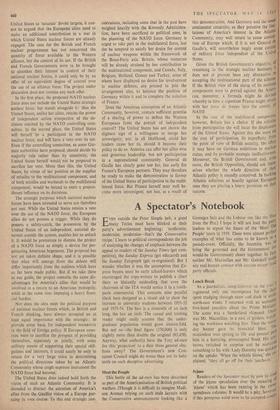Mr. Hyde's book is the outcome of his achievement in
obtaining permission to see the restricted papers in the Home Office, access to which had always previously been denied to writers about Wilde. He is concerned solely with the period of Wilde's imprisonment and release, and he makes effective use of some of the docu- ments, particularly those of medical officers. The Superintending Medical Officer of Prisons, after visiting Wilde at Wandsworth, suggested that `he would like to be left a little more to him- self,' even though he saw nobody at this time. Later, two specialists thought that association with other prisoners might be beneficial, but added that 'it would not be right to allow a man with his proclivities and with his avowed lcve for the society of males to be in association except under the continuous supervision of a warder.' The Secretary to the Prison Board agreed enthusiastically that a warder should be present 'at all times both by day and by night in the room in which the prisoner Oscar Wilde is located.' Later, his petitions that he might be released on the ground that his mind was






































 Previous page
Previous page